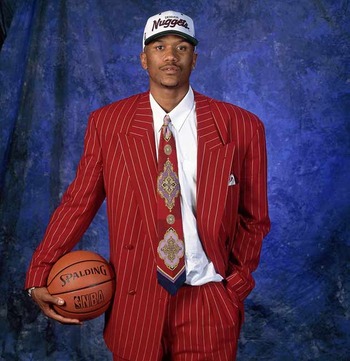Drinking and driving don’t mix, except in NASCAR


It’s been a busy day in the world of high profile athletes and drunk driving.
First, former NBA star and current TV analyst Jalen Rose was given 20 days in jail for drunk driving. Rose’s sentence is remarkably harsh in that it was a first offense, and that a test at the time indicated he was not far over the legal limit of .08% BAC (.088%; although a subsequent blood test indicated a BAC of .12%), and he was involved in a minor one-car accident in which no one was hurt. The judge in Rose’s case is notorious for being very harsh with drunk driving cases, so this doesn’t seem to be a case of disproportionate sentencing based on celebrity status.
Meanwhile, NASCAR driver Michael Annett got a suspended sentence, a $200 fine, and 48 hours of community service for rear-ending a car stopped at a light last February (Charges of resisting arrest and unlawful use of a mobile phone were dropped. His driver’s license was also suspended for a year, but apparently you don’t need a valid driver’s license to compete in NASCAR. It’s like rain on your wedding day).
The remarkable aspct of Annett’s case is that he had a BAC of .32 when arrested, which for most people would be falling down drunk/bordering on fatal alcohol poisoning. According to this calculator, I could drink seven Martinis in a few minutes and not get to a BAC of .32
Americans tend to have very inconsistent attitudes about driving while impaired, depending on the source of the impairment, and the outcome. For example few people seem to get morally outraged about using a cell phone while driving, even though there’s evidence to suggest that cell phone use (let alone texting — it’s incredible how many people will text while driving) is as dangerous as Jalen Rose-levels of drunk driving.
And I’m sure Annett would have gotten a much harsher sentence if his accident had seriously injured or killed someone, despite the fact that he would have been engaging in precisely the same behavior.


